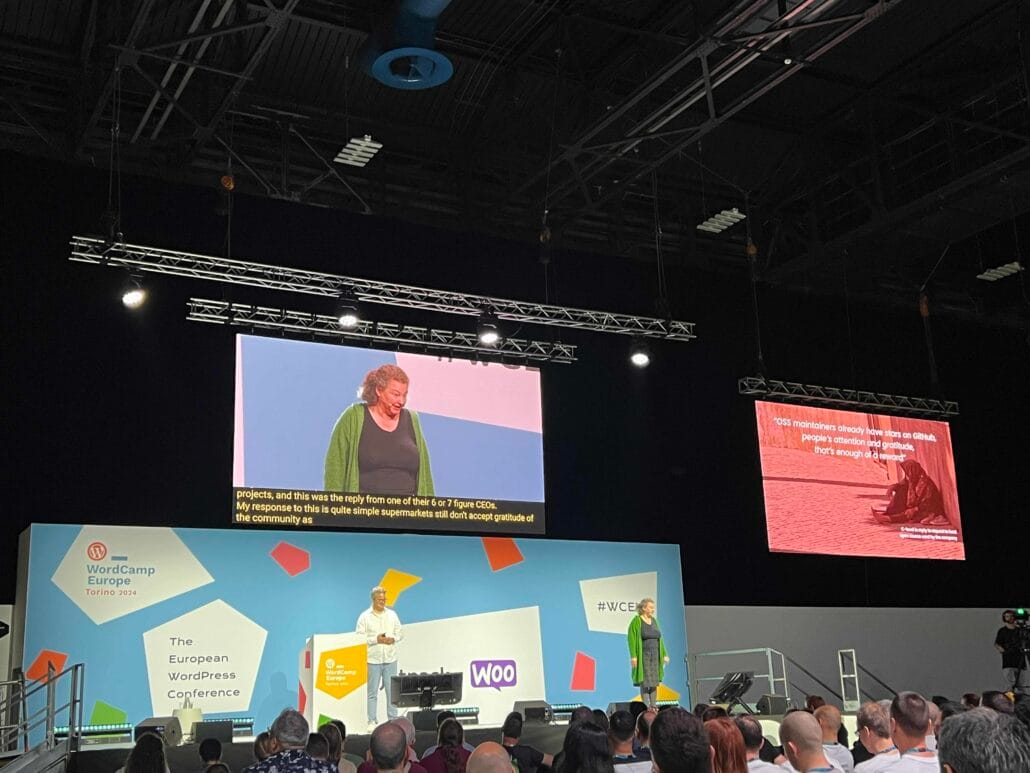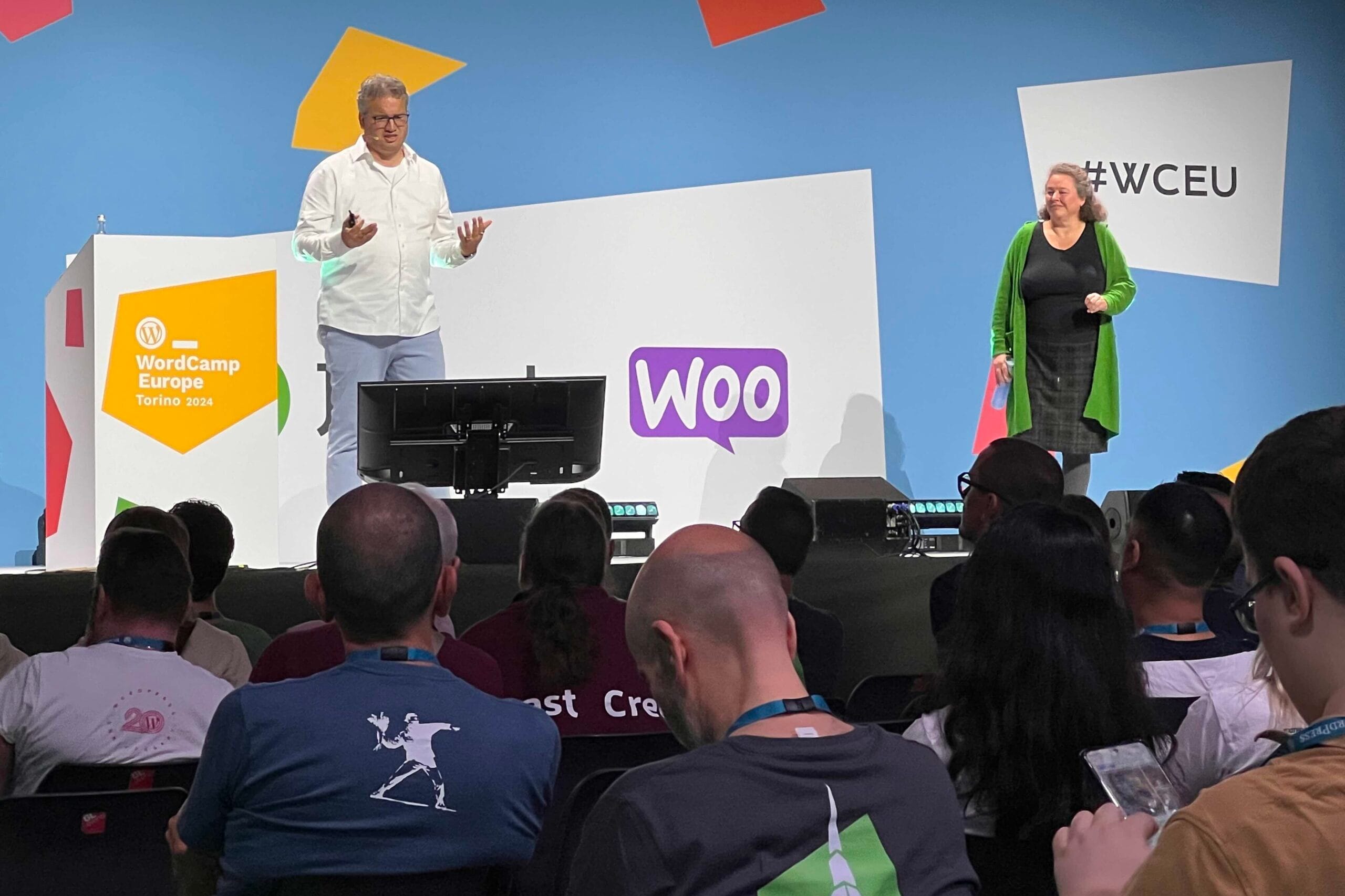I think open source is the most powerful idea of our generation.
WordPress Co-Founder Matt Mullenweg
Key Topics
- Dependency Risks and Business Impact
- Funding and Supporting Open Source
- Maintainer Responsibilities and Challenges
- Corporate Social Responsibility and Open Source
Summary
On the first day of WordCamp Europe 2024 Remkus de Vries introduced Juliette Reinders Folmer and Joost de Valk as influential figures in the WordPress and open source community. Juliette, known for her prolific contributions, and Joost, an investor in open source, were set to discuss open source sustainability.
The speakers addressed the history of open source, starting from 1953, and the evolution of the community’s ethos, which originally focused on collaboration and sharing rather than financial gain. They highlighted the critical role of open source in modern technology, noting that over 90% of software is open source, including essential infrastructure and everyday appliances. However, they pointed out a significant issue: the sustainability of open source projects, as many maintainers are overworked, unpaid, and lack successors.
The discussion moved to the risks businesses face due to their reliance on open source software, with examples of security vulnerabilities and the potential collapse of projects if maintainers are unable to continue their work. They stressed the need for new contributors and the importance of creating a welcoming environment for them. The speakers also touched on the importance of clear documentation, release processes, and the need for funding to ensure the longevity of open source projects.

The conversation then shifted to how companies can contribute to open source sustainability. They suggested changing the vocabulary from «donations» to «funding» to appeal to CFOs and framed the support of open source as mitigating business risks. They proposed that hosting providers could allocate a portion of their earnings to fund open source projects they host. The speakers encouraged the audience to brainstorm solutions for sustainable open source and to continue the conversation beyond the keynote.
Conclusion
WordPress, as one of the most successful open source projects, has played a crucial role in democratizing publishing on the web, powering over 40% of all websites and exemplifying the potential of open source collaboration and innovation.
Launched in 2014, Five for the Future encourages organizations to contribute five percent of their resources to WordPress development. WordPress co-founder Matt Mullenweg proposed this benchmark to maintain a “golden ratio” of contributors to users. Anyone can contribute. Many contributors focus on the technical side of WordPress, such as core development, but there are also teams working in other areas like marketing, translation, training, and community. There is always a way to get involved, whatever your skill set.
Openstream is the maintainer of the WordPress German (Switzerland) translation and is an active member of the Swiss WordPress community, helping to organize WordPress meetups in Zürich and WordCamps in Switzerland. We’d like to encourage all WordPress users and developers to help make open source projects like WordPress more sustainable.




Schreibe einen Kommentar